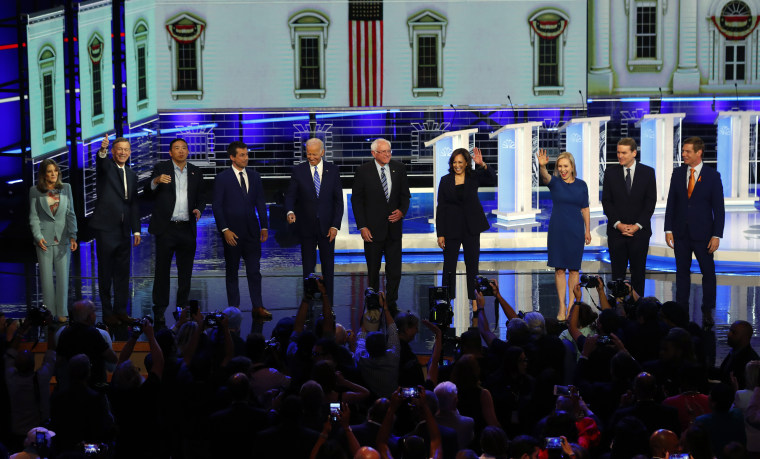When Republican presidential candidates debated in the 2012 and 2016 cycles, one of the unsatisfying things about the events was the degree to which the GOP contenders sounded eerily similar. This was not accidental: the White House hopefuls assumed, correctly, that the way to get ahead in the party's nominating contest was to impress the rabid Republican base.
The number of GOP voters principally concerned with "electability," broad electoral appeal, and finding a mainstream standard-bearer was vanishingly small, so Republican candidates made no real effort to reach them. Instead, their debates were often little more than contests to demonstrate ideological purity.
Sure, they clashed, but only to position themselves as the One True Conservative. Viewers were treated to claims of, "No, I'm the one who's most hostile to immigrants,' "No, I'm the one who hates Obama and the Clintons most," "No, I'm the one who'll dismantle the welfare state," "No, I'm the one who truly worships Reagan," and so on.
Watching last night's debate in Detroit, I was struck by how dissimilar the Democratic contest is this year. As the Washington Post's Dan Balz noted, viewers saw an "ideological brawl" on display.
In Miami, the presidential candidates collectively advocated for policies that highlighted the party's dramatic shift to the left, including government-run health care that would eliminate private insurance, the decriminalization of the southern border and health care for undocumented immigrants. On Tuesday, the moderates in the field pushed back.The fault line that was exposed between left and center now fully defines the Democratic nomination contest and will continue to do so as the candidates move through the summer and fall and head toward the primaries and caucuses early next year. It ultimately will be up to Democratic voters to resolve the differences, but the choices have become clearer and will now become harder to paper over.
That's not a bad thing. On the contrary, it's what should happen under the circumstances.
In a two-party system, both major parties are going to consist of fairly broad coalitions and constituencies, and when it comes time to choose a presidential contender, he or she will have to negotiate between the party's contingents.
For Republicans, that's not especially difficult: GOP candidates know what their base wants to hear, so they compete to satisfy those expectations.
But as was clear on the stage last night, Democratic voters in this election cycle have something more interesting: ideological variety. Candidates disagreed with one another, not over how best to pander, but over how best to govern.
I won't pretend to know who'll benefit most from these kinds of public conversations, but there can be no doubt that Democratic voters have real and distinct choices.
